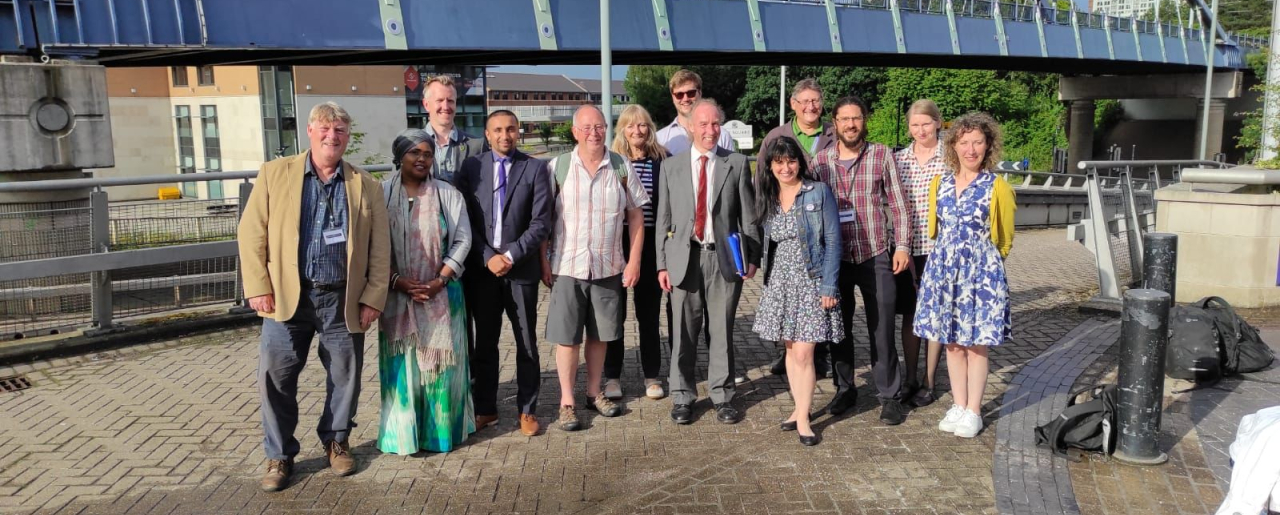Since the 2021 May elections, Greens made the largest net gain of council seats in local authority by-elections of any party. What is behind this extraordinary statistic, and how have Green councillors helped these successes to happen? There are complex factors at play here.

Firstly, the sentiment on the ground is favourable to Greens: more and more people are becoming aware that we need sustainable policies, serious action to tackle the climate and ecological emergency and a move away from ‘business as usual’. This means voters are looking at Greens in a different, more positive light.
Secondly, by-elections offer a much more level playing field which is advantageous to Greens – especially since we are very good at campaigning locally and often our literature is excellent, something other, larger parties struggle with. From calling the election to polling day can be as little as 25 days – not much time to find a candidate, write the literature and get delivering and canvassing. And the issues in a local election are almost always hyper-local.
This is where our Green councillors have been a key factor in Green by-election success: they know to be constantly on the lookout for a potential by-election so that the local party can have as much advance notice as possible. As hard-working councillors who are active in their community, they know better than most councillors about the issues on the ground and know that local party resources are often limited, stepping up themselves to help with all aspects of campaigning. In fact, we have had several Green councillors take on the role of campaign manager – so keen are they to get more Greens elected to their councils!
But, above all, people are now seeing that voting Green makes a real difference and that Green Councillors deliver on their promises. Where Greens are in power, they see them providing constructive solutions and effective leadership on the issues that they care about: last year, Green-led Lewes District Council opened Saxonbury House, the first council housing built in Lewes for over 30 years, which the previous Administration had allowed to fall in disrepair; in Herefordshire, the Green-led Council supported local businesses in the run-up to Christmas by offering a free £15 Shop Local card; led by Greens, Stroud District Council has increased recycling from 23 per cent to 61 per cent; and in York, where the Greens hold the Transport Portfolio, the Council is investing £3.3m in walking and cycling infrastructure and improvements to public transport.
In opposition, voters can see the impact of the “Green in the Room”, where Green councillors are holding the Administration to account and pushing a Greener agenda. Having led the drive to get their councils to recognise and declare the Climate Emergency, they have been instrumental in getting this commitment embedded in core Council Strategies, for effective scrutiny processes to be in place and for meaningful action: Mid Suffolk Greens persuaded the Council to purchase almost three acres of riverside land to create a new biodiversity corridor; Norwich Greens successfully lobbied for the establishment of a Climate Commission; South Tyneside Greens persuaded the Council to adopt of Fair Tax Policy which commits the council to shun companies not paying their fair share of tax and Peterborough Green Councillors successfully proposed council action to mitigate the impact of climate change through an Action Plan to protect residents from flooding, heatwaves and other extreme weather events.
And the voters like the more collaborative, constructive way that they see Greens doing politics, such as in Herefordshire where Greens have encouraged gender-balance Boards, youth representation and community engagement through a Participatory Budgeting process as part of its Climate Assembly.
The Green Councillor network – the Association of Green Councillors – is strong and supportive. Green councillors have been invaluable in answering questions from potential candidates about what being a councillor involves and then, when a by-election is won, in mentoring the new councillor through those first uncertain months in a new and challenging role.
The good news is that it seems there will be many more by-election wins in 2022, which will present more opportunities for our Green councillors to help. Success breeds success so, now we know we can do it, there will surely be more of a willingness to have a go. As we learn what works and what doesn’t, our collective belief that we can win and our collective understanding of how to win will combine to make Greens, supported by our hardworking Green councillors, an increasingly formidable force when it comes to winning by-elections right across the country.